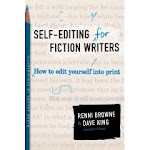At our AAWC (www.anauthorworld.com) meeting yesterday, we talked about whether we were pantsers or plotters. These are individual writing styles. Which are you?
A pantser writes by the seat of his pants -- he just sits down and starts writing, without a plot or knowing exactly where he's going. He allows his characters to dictate where to go; he loves the spontaneity of his writing.
The pros of this type of writing is the freedom it allows. You don't have to have anything more than a vague idea in mind before you start writing. You can allow emotion and intuition to guide you, rather than a formal outline. You can go off on as many rabbit trails as your heart desires. Most beginning writers start off this way, and many professional writers still do this. Any outline they might have, they keep inside their head. Pantser feel this style of writing gives them the most creativity.
The problem with this kind of writing? Well, you might wind up with a rambling story and confusing plot. It may be overwhelming, especially for a beginning writer, to revise and fix. The inconsistencies and logic flaws can snowball into a huge amount of revision work. It's easy to get writer's block because you don't know where you're going with the story. You'll have pages and pages that you'll have to discard because they don't add to your story (even if they were fun to write).
 A plotter writes down a detailed outline of his story before he even starts. He knows his beginning, middle, and end of his story; he even knows all the parts in-between. He has detailed character sketches, so that he knows everything he needs about each character and how these details will fit into the plot. All the backstory is worked out ahead of time. He can catch and correct any inconsistencies or logic flaws either before hand or as he writes. He can write fast because he knows where he is going and how he's going to get there. Writer's block usually isn't a problem.
A plotter writes down a detailed outline of his story before he even starts. He knows his beginning, middle, and end of his story; he even knows all the parts in-between. He has detailed character sketches, so that he knows everything he needs about each character and how these details will fit into the plot. All the backstory is worked out ahead of time. He can catch and correct any inconsistencies or logic flaws either before hand or as he writes. He can write fast because he knows where he is going and how he's going to get there. Writer's block usually isn't a problem.The problem with this kind of writing? Well, you could wind up with stale prose. All the creativity went into making the outline. Sure, you can write faster, but is the emotion still in it or has it all been drained out? Your brain thinks it's already written the story because of the detailed outline. You write fast because you just want to get it over with; the love is gone. You can feel confined to following the outline, even though your characters and your heart tell you to change course.
And then there's the plantser: that's someone -- like me! -- who outlines her story ahead of time, but not in such detail that she becomes chained to it. I do a detailed character sketch ahead of time, so that I know my characters very well. Then I use my characters to dictate my story. I know my beginning, my ending, and all the major plot points in-between. But since I haven't outlined my entire novel, I have the freedom of letting my characters dictate much of the story. However, I don't let them change the major plot points or ending, unless I realize that their way is better It's not always -- sometimes it's just a fruitless rabbit trail they wanted to follow, and I have to know this and stop it before I spend too much time and energy going in the wrong direction.
So which are you? A pantser? A plotter? A plantser?
Whichever one you are will depend a lot on your personality. For some people, writing any type of outline just kills their creative spirit. For others, they are totally lost without their guide map, their outline. There is no one right way. I have successful, multi-published friends in each catagory.
So which are you? It doesn't matter, as long as you sit down and write.
If you need help with your writing, feel free to contact me at pam (at) anauthorworld (dot) com.















